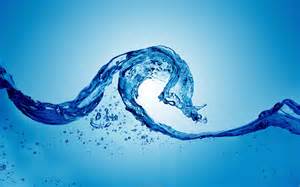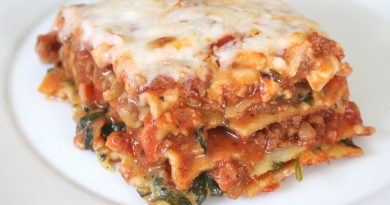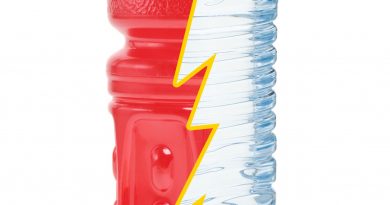Avoiding Dehydration
Playing sports in the summer heat can be very dangerous and may even lead to death. Even when it doesn’t lead to death, dehydration has serious consequences. Dehydration can lead to injuries and will cause you to cramp up and end your game early.
Every high school or college football coach who plans to run two-a-days in the heat of August needs to be seriously concerned about hydration. Every year we hear a story about an NFL player that dies in practice. Let’s work hard to avoid these situations in the future and prevent this from happening to our players.
Avoiding dehydration does not begin when you start playing football. It begins the day before you play. A lot of athletes think that the best way to avoid dehydration is to continually hydrate themselves while playing. While this is highly recommended, it is not where the hydration process begins.
The day before you play sports, you need to start thinking about hydration. You need to drink throughout the day and eat large amounts of carbohydrates. Eating more carbohydrates than usual will go a long way to fighting off dehydration. Carbohydrates that are unused will be stored in your muscles and liver. These essential sugars are what help you maintain your energy level as you play longer and harder. They also make your muscles swell up, absorb, and store more fluid.
Carbohydrates are foods like potatoes, bread, pasta, rice, and sugars. You can eat macaroni and cheese, or baked potatoes, or Chinese food with a lot of rice. Personally, our favorite is lasagna. It contains plenty of carbohydrates as well as other essential nutrients. Make sure to drink plenty of water and juice throughout the day. How do you know if you have drank enough? Your urine will be clear or very light yellow in color.
The day of the big game, you need to hydrate yourself adequately as well. When you wake up in the morning, you usually have a lot of urine to void. Our bodies spend all night making urine. We need to replace those fluids quickly. Most of us will need to drink about 40-60 ounces of water in the morning to recoup the water we lost and return our hydration status to normal. That’s about four to six 12 ounce cans of pop in volume. We don’t recommend soda pop for hydration, but if you have nothing else, it’s fine. That’s about six tall glasses of water and about two of those large 24 ounce Gatorade bottles. The more you drink that morning the better. Most coaches, including myself, recommend using a 50/50 mixture of a sports drink (like Gatorade/Powerade) and water. Most sports drinks are too sugary and concentrated to be useful as hydration, the 50/50 mixture is optimal.
The morning meal is equally as important. Most of us eat cereal and milk. Eat two or three bowls, but make sure you have plenty of water with this. Not juice, not soda, not milk. Just water. Water along with the nutrients in cereal and milk will help you hydrate quickly. Throwing some fruit on your cereal is also very helpful. Some banana, apple, strawberry, blueberry, or orange slices will go a long way to keeping you hydrated. Check your urine after a few hours and hydrate as needed. Your urine may be darker initially because most cereals add a lot of nutrients and minerals that are difficult to absorb and you just “pee them out.”
Coffee seems to get a bad rap when it comes to hydration. This is not always the case. If you only drink coffee the morning of your game, you will struggle. Have your coffee, but chase it down with plenty of water and other drinks. If your body is used to having coffee every day, coffee will not have as strong of a diuretic/dehydration effect on you as it would on a virgin drinker. The effects wear off as your body becomes accustomed to the coffee.
When your urine turns clear, or as close to clear as possible, you are well hydrated. Make sure you keep drinking as game time approaches.
When the game begins, you want to make sure water is accessible and nearby. Make sure you have plenty of fluids for all the players and that the players are actually drinking. If you are a coach, force your players to stop and take a drink, even if they think they aren’t thirsty.
If you plan on playing sports for 30 minutes or less, then water is all you will need for hydration. If you plan on playing sports for longer periods of time, you will need an electrolyte replacement hydration like Gatorade or Powerade. Any time you get a break in the action, make sure you take time to drink plenty of fluids. Use the 50/50 mixture for better absorption.
What happens if you don’t hydrate?
The simplest thing that can happen is that you begin to cramp up and can’t continue playing. The number one cause of muscle cramps in athletes is dehydration. It’s not a lack of potassium and you don’t need to eat bananas. Muscles cramps are usually first felt in the calf muscles and can be very painful.
If you continue to play and ignore the muscle cramps, your muscles will be overworked, running on empty, and highly susceptible to tears and injuries. A lot of players tear muscle fibers in their calves because of poor hydration.
The next concern is heat exhaustion. A player with poor hydration will lose a lot of fluids, become dizzy, drop his blood pressure and faint. This is not very common in young athletes, but can happen with poor hydration, humid conditions and hot ambient temperatures. Usually, this happens to the elderly that may already have blood pressure problems or weekend warriors (the 30-40-somethings) that haven’t played sports in a while.
The worst case scenario is a heat stroke. This is a condition where your body’s temperature regulation mechanism fails. Your temperature can rise to over 106 degrees and your brain will essentially fry. This leads to death in most cases. The number one cause of heat stroke is poor hydration and poor body temperature control. Humans sweat so that they can disipate heat. What if you body is generating so much heat that you can’t sweat it back down to normal temperatures? That’s when you can get a heat stroke. This is why it is important not only to drink fluids, but take some time and wash your body off with cool water, go for a swim, or dump some water over your head. The simple act of running cool water over your arms, face, and head will alleviate the temperature build up.
How do I replace fluid loss?
The ratio we use in medicine and surgery is a three to one or four to one ratio. For every ounce of fluid a person loses, we like to replace it with three to four ounces. Why? Because not all of the fluid you drink stays in your blood stream. About 2/3 of it goes into the cells themselves and is used in cell metabolism. Hence, only about a third or less of the fluid stays in your blood stream.
When you are working hard and exercising, cells need even more water to metabolize even more than usual. During excercise the demands on the body are even higher and you may need an even higher ratio. Some trainers recommend a 4:1 ratio for athletes engaged in sports. So for every ounce you lose by sweating or urinating, you need to drink four ounces to replace it. How do you know how much your are sweating? You don’t, it is very hard to measure. Hence, keep drinking until your urine is clear!
Dr. Alo’s Dehydration Basics:
1. Hydration begins the day before.
2. Eat lots carbs the day before.
3. Eat carbs for breakfast and drink tons of water.
4. Drink till urine is clear
5. Drink before you play.
6. Drink as you play.
7. Drink as you play.
8. Four to one replacement ratio.
9. Take time to cool down with water on arms, face, and head.
10. Replace electrolytes if you play for more than 30 minutes.
Follow these simple steps to a healthier and safer summer football program!



